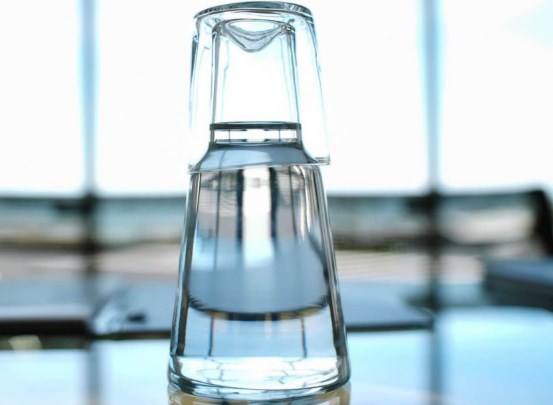Ingesting too much fluoride is not healthy especially for kids under the age of 8 because this is when kids’ permanent teeth are forming. Ingesting too much fluoride results in the discoloration of their teeth. I did some research on whether Brita filters can remove fluoride and other contaminants from water.
Does Brita filter remove fluoride? Brita filters are not effective in removing fluoride from water. Brita filter is only able to remove negligible amounts of fluoride. Brita uses carbon/charcoal which is not effective in removing fluoride. **Read our extensive guide on fluoride filters**

How does Brita work?
Brita removes contaminants using activated carbon. Carbon is a very absorbing material because it is very porous; thus, it’s able to capture a lot of contaminants through its internal spaces. In fact, almost all filtration systems in the market use carbon in one form or another. Purification through carbon is a natural form of filtration. Brita is effective in removing chlorine and odor from drinking water.

Does Brita remove lead?
As we have already seen Brita relies on carbon blocks for the filtration process. Carbon filters are able to remove lead. However, the ability of Brit filters to remove lead becomes exhausted quickly as it processes more and more water. Therefore, Brita is not a very reliable lead removal method. For lead removal, the most reliable method has been proven to be reverse osmosis and distillation.
Does Brita remove E.coli?
E-coli are microorganisms that live in the intestines of animals. While most E-coli organisms are harmless, some are known to cause food poisoning. Carbon filters, such as Brita, can’t remove E-coli. This is because E-coli micro-organisms are extremely small and are able to go through carbon which is very porous. When it comes to treating E-coli in water, the best methods are UV filtration and reverse osmosis.
“E.Coli is a bacteria that is commonly found in the lower intestine of warm-blooded animals. While most E.coli strains are harmless, some can cause food poisoning.” World Health Organism
Does Brita remove bacteria?
Brita filters are not effective in removing bacteria. The best way of removing bacteria is through disinfection by adding chlorine or chloramine in water or by using ultraviolet radiation. In fact, research has shown that some carbon filter like Brita sometimes allow bacteria to multiply on the filter if they are not properly maintained.
Does Brita remove limescale?
Brita filters are good at removing lime-scale. Limescale comes about when calcium and magnesium dissolved in water. Brita filters use a combination of activated carbon and ion exchange resin to remove dissolved substances from water. The, therefore, act as a water softener. It’s able to remove lime-scale from the water. While limescale is doing not pose a health problem, it results in lots of inconvenience like blocking pipes, soap does not leather well and the water tastes bad.
Does Brita remove chromium 6?
Brita can remove chromium 6 to some extent because it uses ion exchange filtration. However, you should be very careful because this heavy metal tends to accumulate on the filters and therefore reduce their effectiveness. Chromium 6 is a heavy metal which according to WHO, it’s classified as group one carcinogen meaning that it has a high chance of causing cancer when ingested. The most ideal method of removing chromium 6 is by using reverse osmosis systems. RO systems are certified to remove chromium 6 up to 96%.
Does Brita need to be refrigerated?
Because water filters can be a breeding ground for bacteria, it is recommended that you keep Brita filter in the refrigerator. The cold temperature ensures that bacteria don’t multiply on the filters. Refrigeration of Brita filters ensures that you are assured of healthy great tasting water. It is also very important that regularly change filters because they might have become infected with bacteria.
Can you clean a Brita filter?
Yes, you can clean the Brita pitcher, but not the filter cartridges. In order to ensure that Brita pitcher is clean just wash them in the sink with hot water and sponge. You can remove the cartridges but they don’t require to be washed.
How safe is a Brita filter?
Brita water filters are safe to use. The only risk associated with this filter is the risk of bacteria accumulating on the filters. However, you can avoid this problem by storing them in a refrigerator. In addition, regularly changing the filters helps to reduce the risk of bacteria accumulating on the filters.
Are Brita jugs BPA free?
Brita is BPA free, and it has the certification from the National Sanitation Foundation (NSF) which does extensive tests of material used to make water containers.
Conclusion
High consumption of fluoride can result in discoloration of teeth. It is therefore important that fluoride is filtered from drinking water. Brita filters are not effective in removing fluoride. They only remove traces of fluoride. Brita filters use activated carbon and ion exchange resin. The most effective systems for filtering fluoride tend to be those that use revise osmosis. Because Brita filters use carbon for filtration, it’s great at removing contaminants such as chlorine. When it comes to bacteria, Brita filters are not as effective. In fact, bacteria can accumulate on the filters. It is advisable that you store the Brita filters in the fridge to avoid contamination.
Related articles
- WWW.easyhome101.com/aquasana-vs-zerowater-vs-aquagear-pitchers
- Does Zerowater Remove Flouride
- Best Filter to Remove Lead from Water
- How to Remove Radiation from Water
ABOUT LEON SMITH
 Leon is a 27-year-old blogger from Mauritius who is currently studying for a Master’s degree in chemical and processing Engineering at the University of Eldoret in Kenya. Read more about him.
Leon is a 27-year-old blogger from Mauritius who is currently studying for a Master’s degree in chemical and processing Engineering at the University of Eldoret in Kenya. Read more about him.